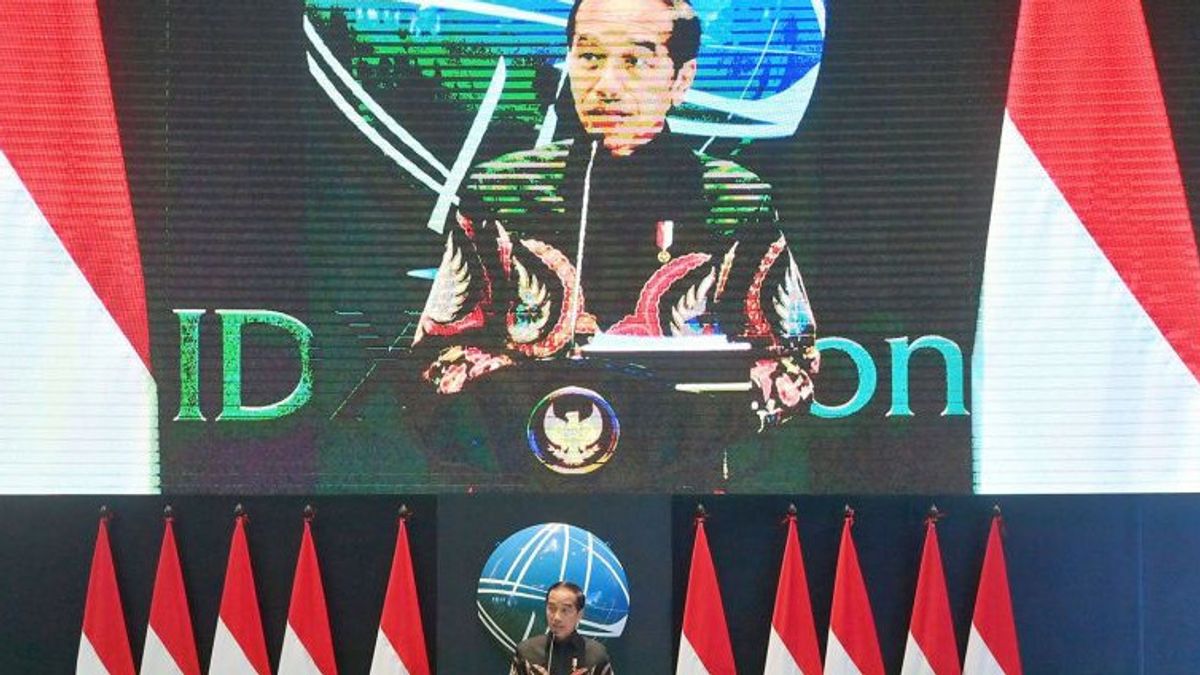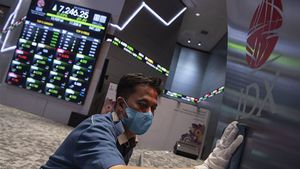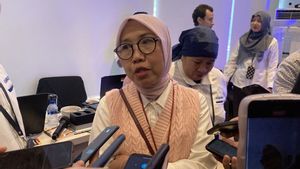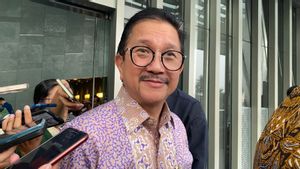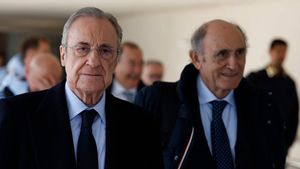JAKARTA - Carbon carbonethics researcher Ahmad Hidayat said not all presidential and vice-presidential candidates showed support for carbon trading, even though Indonesia had started trading.
President Joko Widodo has opened a carbon exchange in September 2023 and the carbon exchange is Indonesia's contribution to the fight against the climate crisis.
Meanwhile, the three pairs of candidates (paslon) for president and vice presidential candidates do include carbon trading in their vision and mission. However, he continued, not all of the presidential and vice presidential candidates have shown their support for carbon trading.
"Of these three candidates, actually the most supportive for carbon trading is Ganjar Pranowo. Because, from the vision and mission and the people behind his campaign team are indeed pro-carbon trade," Ahmad said in a statement in Jakarta, quoted from Antara, Wednesday, January 17.
According to him, for Prabowo, everyone seems to have understood the concept of nationalism.
"Sometimes the concept collides with other concepts, it's not suitable for the business world, for example. And, so far what is a bit in the middle and not yet clear is Anies. Even though in the analysis of his vision and mission documents, we admit that it is the most comprehensive and most environmentally pro compared to other presidential candidates," he added.
Ahmad explained that the Anies-Muhaimin candidate pairs are trying to balance the collaboration between the government and the community.
Meanwhile, candidate pairs Prabowo-Gibran concentrate on mitigating and preventing environmental damage through a nationalist and Ganjar-Mahfud approach emphasizing market mechanisms in climate management.
According to Ahmad, in all camps of presidential candidates there are actors who have interests. However, the most obvious are the Ganjar and Prabowo camps.
"This can be seen from the vision-mission and background of the people behind the campaign team of the two pairs of candidates who are pro-carbon trade, where carbon trading is seen as an alternative to solving climate problems, such as reducing emissions," he said.
However, he continued, the extent to which they revised the carbon trade has not been seen.
"And, it is usually that the vision and mission documents will not reach technical details. However, the big idea lies with these two presidential candidates. Especially Ganjar, who has already discussed incentives for the private sector, who trade carbon," said Ahmad.
Meanwhile, Anies, added Ahmad, is in the middle, between the market and the government. His vision and mission documents are read most comprehensively and most pro-environmentally compared to other presidential candidates.
"Maybe because of his background as an academic who excels in academic papers. But, his position is conservative. So, it can't be 100 percent to the market. The push towards carbon trading is limited. However, in its vision and mission, there is also that direction," said Ahmad.
For Prabowo, his vision and mission documents emphasize more about the centralistic role of the government and nationalism. There is a very broad trend of state control, which can be interpreted as providing opportunities for his own group.
Meanwhile, Carbonethics researcher Hansen Sukma added, when he was governor, Ganjar had experience developing renewable energy projects and energy transitions, as well as collaborating with Norway.
SEE ALSO:
Meanwhile, Anies is not very technical in terms of trading, but rather international collaboration. While being the Governor of DKI Jakarta, Anies was involved in forums for global cities to fight climate change.
According to him, Prabowo has not been seen, because he has never served as a regional head, so his performance is limited to penetrate the carbon market or regulations related to environmental issues.
"So, if it can be concluded, indeed Ganjar has higher flexibility in the market when he views environmental issues. The involvement of the private sector regarding environmental issues is likely to be more," he said.
Meanwhile, Anies will have more control and can be seen from his various statements that always reallocate the budget for infrastructure-soft development. "So, in the end, the government will play a more role in carbon trading," he said.
The English, Chinese, Japanese, Arabic, and French versions are automatically generated by the AI. So there may still be inaccuracies in translating, please always see Indonesian as our main language. (system supported by DigitalSiber.id)
